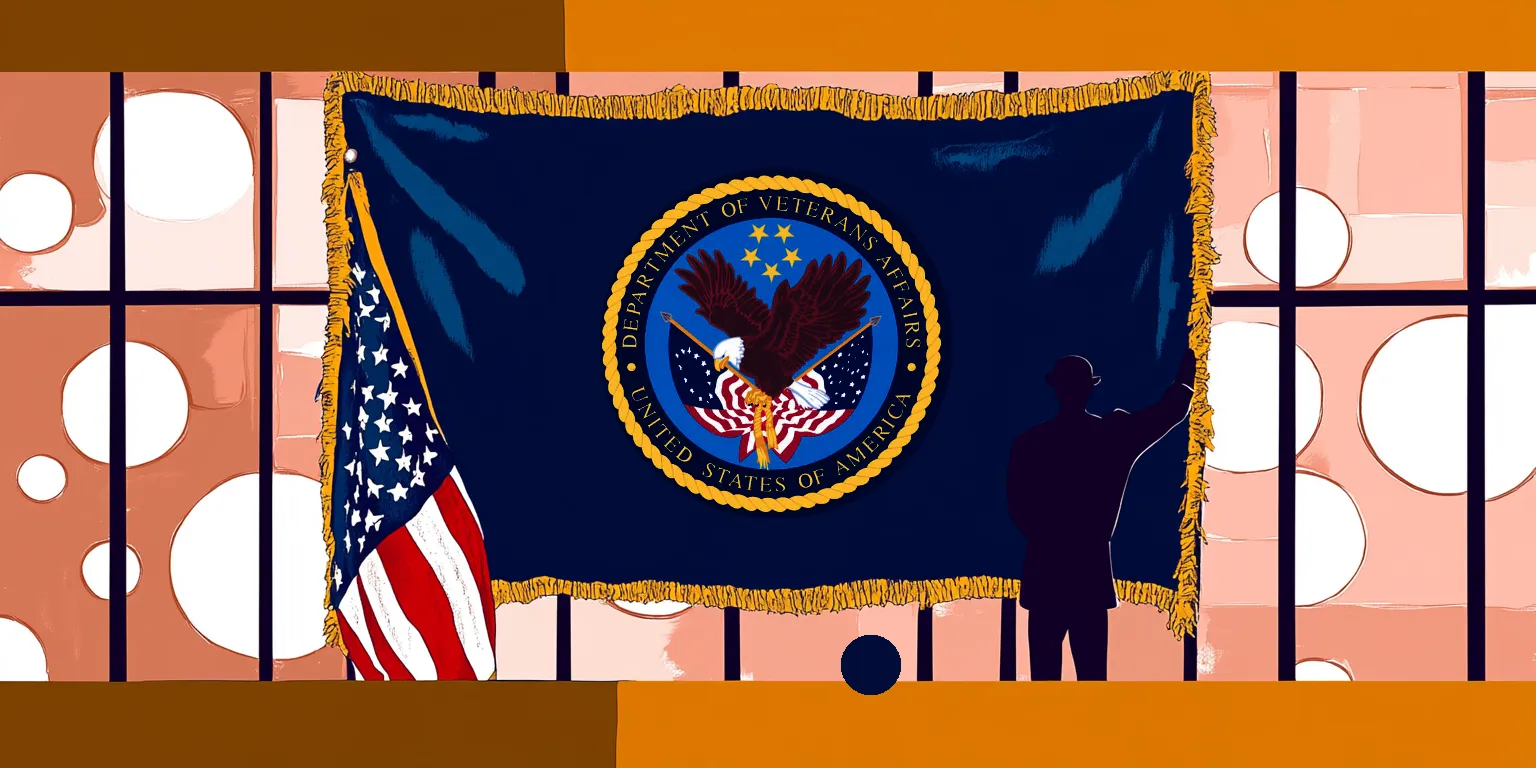In the late hours of another difficult night, former U.S. Navy Petty Officer First Class Anthony Zeremba, overwhelmed by thoughts of suicide for the fourth time in a few months, found himself holding a pistol in one hand and his phone in the other.
Like many veterans, especially those with front-line combat experience, Zeremba had been struggling with PTSD, severe anxiety, and depression, which were exacerbated when he returned home in late 2021. Zeremba had been experiencing increasingly frequent thoughts of suicide and self-harm for months since returning from a tour aboard the USS. Dwight D. Eisenhower. While he sought care through his base, Zeremba says the lack of care was “like getting slapped in the face,” and he had reached a breaking point. This is when he first decided to try MDMA, an entheogenic (substances that induce alterations in perception, mood, consciousness, cognition, or behavior) drug most often associated with the rave and dance scene but which has been undergoing clinical trials as a treatment for PTSD for years.(1)
After a single night spent using MDMA with a close friend, Zeremba says his PTSD symptoms improved “almost immediately.” This moment of struggle, a stark illustration of the mental health battles many veterans face in silence, highlights the critical need for better support and innovative new treatments.
“In the past 20 years, with the wars in Iraq and Afghanistan, we’ve had 2.8 million Americans who have been deployed to the combat theater, many of them multiple times.”
The mental health crisis among veterans is a rapidly-growing concern, with increasing numbers facing challenges such as post-traumatic stress disorder (PTSD), depression, anxiety, and a tragically high rate of suicide (the Department of Veterans Affairs estimates that 20 veterans die from suicide daily). Traditional treatments, while beneficial for many, often fall short of addressing the complex, multifaceted nature of veterans’ mental health needs. In this context, psychedelic-assisted therapy (PAT) may offer a novel approach to healing and recovery. MDMA therapy has shown promising results in clinical trials, suggesting a potential paradigm shift in how we treat mental health issues in veterans.(2)
Keep Up with Uncensored Psychedelic Trends
Join our newsletter at Psychedelics Uncensored.
We respect and protect your privacy. By subscribing your info will be subject to our privacy policy . Unsubscribe easily at any time
“The evolution of mental health care in the military has been a journey from shadow to light,” remarked former Brigadier General and Executive Director of the American Psychedelic Practitioners Association, Stephen Xenakis, highlighting historical neglect and recent advancements in the field. Xenakis, a psychiatrist with a career spanning decades in the army, brings a unique perspective to the discussion, emphasizing the critical need for new treatments.
“We’ve come a long way since the days when PTSD wasn’t even recognized as a diagnosis. So yes, we’ve made some great progress, there’s still more work to be done, and we are just now learning about the sort of potential that this [psychedelic therapy] has,” he notes.
Xenakis believes that expanding psychedelic medicine and MDMA therapy is more than just good policy. He also feels that, as a nation, we have an obligation to provide veterans with a higher standard of care.
Xenakis argues, “Health care is fundamental. It anchors our vitality and strength as a nation. Everything we’re doing here is to ensure that we stay strong. One of the ways we do that is by supporting those men and women who have given it their all for the nation and getting them the treatments they need.”
However, the path to integrating MDMA therapy and other psychedelic medicines into mainstream veteran care is fraught with challenges, including legal barriers, societal stigma, and the slow pace of clinical research. This glacial rate of change has led many veterans to seek psychedelic therapy at healing and retreat centers abroad. “I can’t fathom that, it’s irresponsible, as a retired army general, to have individuals needing to go offshore for care when we could do it ourselves,” Xenakis laments. “What we need, and what veterans need, is change, access to new treatments, and, of course, the integration and follow-up care critical to ensuring their success.”
The Mental Health Challenges Facing Veterans

The mental health landscape for veterans returning from service is fraught with significant challenges. Statistics paint a stark picture: according to various reports, an estimated 20% of veterans who served in Operations Iraqi Freedom and Enduring Freedom suffer from PTSD or major depression. The suicide rate among veterans is also alarmingly high, with more than 6,000 veterans taking their own lives each year, a rate significantly higher than that of the general population. These figures underscore the urgent need for effective mental health care solutions for veterans—solutions that go beyond the conventional and delve into innovative territories.(3)
Keep Up with Psychedelic Trends
Get uncensored psychedelic news, events, and updates. Join Psychedelics Uncensored!
We respect and protect your privacy. By subscribing your info will be subject to our privacy policy . Unsubscribe easily at any time
While effective for some, traditional treatments often leave a gap in care. Xenakis points out, “There’s often a difference in what we can provide veterans through the VA and the reality of the care they need. To be frank, we’re missing the mark while thousands of men and women who served our country honorably need new methods of care.”
MDMA therapy and other psychedelic medicine treatments offer a promising avenue for addressing these unmet needs. Clinical trials and research into substances like MDMA and psilocybin have shown significant potential in treating PTSD, depression, and anxiety, offering hope where traditional methods have fallen short. The therapeutic use of psychedelics, under controlled and supervised conditions, has been reported to facilitate profound emotional and psychological healing, enabling individuals to process and overcome trauma in ways previously thought impossible.(1, 2)
The mental health crisis among veterans is not just a matter of individual suffering; it’s a societal issue that reflects our collective responsibility to those who have served. “Their health is important for our security, our national security,” Xenakis emphasizes, linking the well-being of veterans directly to the nation’s strength and vitality. This connection underscores the imperative to explore alternative treatments like psychedelic therapy, which could offer transformative benefits for veterans struggling with the invisible wounds of war.
“What does this individual, this man or woman, really need so that they feel they’ve got a better life?”
However, incorporating any new therapies, especially psychedelics, into standard mental health care is complex and entangled in regulatory, cultural, and logistical challenges. Xenakis explains, “One of our goals at the APPA is to create the professional and ethical guidelines that we need to expand advocacy efforts and research. We know that psychedelic medicine can be effective for individuals with conditions like PTSD. Now the challenge is effectively communicating that to regulators and the public.”
The Moral Imperative of Providing Veterans Access to MDMA Therapy & Psychedelic Medicine
Xenakis articulates a vision where health care, especially mental health care, is not just a service but a cornerstone of national vitality and security. “They are important for our security, our national security,” he asserts, emphasizing the critical role of veterans in the fabric of society. This perspective frames the discussion around psychedelic medicine not merely as a clinical issue but as a matter of national interest and moral obligation.
Xenakis notes, “In the past 20 years, with the wars in Iraq and Afghanistan, we’ve had 2.8 million Americans who have been deployed to the combat theater, many of them multiple times. Often, we see these individuals come up, and while they may be back on U.S. soil, they’re still dealing with the struggles of war. But when they get home, they don’t always get the care they need, and we’re trying to change that.” The acknowledgment of the unique and profound challenges faced by veterans highlights the inadequacies of current mental health treatments and the necessity of seeking innovative solutions. MDMA therapy and other psychedelic treatments, with their potential to offer significant relief to those with PTSD, represent such an innovation.
Xenakis champions the idea that psychedelic therapy should be tailored to the individual needs of veterans beyond the symptoms of their diagnoses. “What does this individual, this man or woman, really need so that they feel they’ve got a better life?” he asks, advocating for a holistic approach to veteran care that considers the whole person. “One of the problems we have now is that we’re treating the symptoms of PTSD, or depression, or suicidality, not the root cause. Psychedelics may be able to help us address those issues in a more holistic, much deeper way.”
Xenakis emphasizes the necessity of developing best practices and informed policies that can guide the integration of psychedelic therapies into mainstream health care for veterans. “We’re all clinicians, licensed, and we’re here to develop the sort of best practices we need to get the ball rolling in a positive direction,” he states, highlighting the collaborative effort required to navigate the complexities of introducing psychedelic medicine into veteran care. As research progresses and societal attitudes evolve, we must ensure that these men and women can access the most effective treatments available, including MDMA therapy and psychedelic medicine.
Sources

1. Mitchell, J. M., Ot’alora G. , M., van der Kolk, B., Shannon, S., Bogenschutz, M., Gelfand, Y., Paleos, C., Nicholas, C. R., Quevedo, S., Balliett, B., Hamilton, S., Mithoefer, M., Kleiman, S., Parker-Guilbert, K., Tzarfaty, K., Harrison, C., de Boer, A., Doblin, R., & Yazar-Klosinski, B. (2023). MDMA-assisted therapy for moderate to severe PTSD: a randomized, placebo-controlled phase 3 trial. Nature Medicine, 29, 1–8. https://doi.org/10.1038/s41591-023-02565-4
2. Gregorio, D. D., Aguilar-Valles, A., Preller, K. H., Heifets, B. D., Hibicke, M., Mitchell, J., & Gobbi, G. (2021). Hallucinogens in Mental Health: Preclinical and Clinical Studies on LSD, Psilocybin, MDMA, and Ketamine. Journal of Neuroscience, 41(5), 891–900. https://doi.org/10.1523/JNEUROSCI.1659-20.2020
3. Be the One | The American Legion. (n.d.). Www.legion.org. Retrieved February 20, 2024, from https://www.legion.org/betheone/about
This material is not intended as a replacement or substitute for any legal or medical advice. Always consult a medical professional about your health needs. Psychedelics are widely illegal in the United States, and readers should always be informed about local, state, and federal regulations regarding psychedelics or other drugs.

 David Connell
David Connell





